We all understand the significance of water in our everyday life. However, it’s also challenging to find pure drinking water as there is a lot of contaminated water. Usually, water has to pass many treatment processes before it’s available for drinking, especially when it comes to hard water areas. In this article, we will make a brief comparison between water conditioners vs water softeners so that you can know about the best water treatment system for your house.
Hard Water is one of the most common issues that need to be addressed. Several harmful substances can be present in untreated water, such as limescale, bacteria, etc., that can further cause health problems, plumbing issues, and much more.
Table of Contents
What is Hard Water?
The term Hard Water is specifically used for the particular type of water containing excessive minerals such as magnesium and calcium. Remember, these calcium and magnesium deposits can block the entire plumbing system and decrease many appliances’ lifespan. Fortunately, there are many effective water treatment options available in the market for hard water conditioning.
How to Get Rid of Limescale and Hard Water?
Limescale build-up in the plumbing system and appliances can become quite challenging. Due to the increased minerals in hard water, the limescale build-up often causes damage to the heating elements of washing machines and dishes. It can even damage the showerheads, faucets, and plumbing pipes. All these unfortunate situations often require costly repairs or replacements that can be very inconvenient for most people.
However, the only solution to avoid all these problems is to use any reliable water conditioning system, water softener, or electronic descaler. Remember, by using any water treatment system, you can quickly get rid of 99% of hard water-related problems without any hassles.
What is a Water Conditioner?
Hard Water Conditioners are a type of filtration system used to improve the overall quality of water. The presence of excessive minerals such as magnesium, calcium, or bacteria can make the water unhealthy for drinking. A water conditioning system uses for the treatment of water to make it suitable for drinking. Moreover, water conditioner systems can also deal with several limescale build-up-related issues in the plumbing system, taps, faucets, or showerheads.
How does a Water Conditioner Work?
The working of water conditioners is often similar to water softeners as both work for the same purpose. However, the actual working process of a water conditioner is quite different from water softeners. Most water conditioners use a salt-free system to reduce or remove the unwanted compounds present in the water, such as chlorine, chloramines, VOCs, and other organic gases. We all know that there are several types of water conditioners available in the market. Each of them uses a different approach, such as template-assisted crystallization TAC and many others.
Check Out: Top Rated Water Softener System in UK
Recommended Water Conditioners
1. iSpring ED2000 Water Conditioner
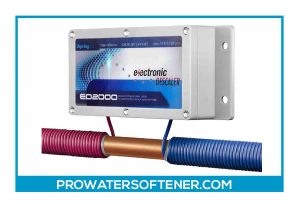
It’s a cost-efficient water conditioner that will consume less energy to reduce electricity bills. However, this ED2000 Water Conditioner’s price tag is a bit costly.
- Salt and chemical-free working.
- Prevents limescale build-up.
- Multiple functions.
- Energy and cost-efficient.
- Easy to install.
- Bit expensive
2. P3 P7920 Chemical-Free Water Conditioner
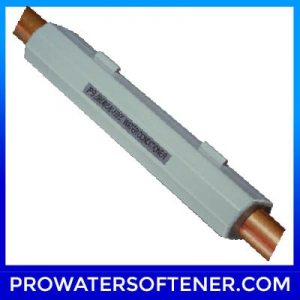
The P3 P7920 Water Conditioner can easily fit 3/4 inch water pipes without any hassles of expensive plumbing jobs or hectic installations. The 10 Year money-back warranty of this water conditioner will be beneficial for you on a long-term basis to secure your hard-earned money.
The unique working capability of water conditioners will never change the original taste of the water during the water treatment process. If you are looking for any reliable and inexpensive small water conditioner, P3 P7920 will be the ideal option for you.
- Doesn’t require any chemicals or salt.
- Easy to install.
- Lightweight and compact design.
- Requires no maintenance.
- Poor magnetic strength.
Types of Water Conditioners
we all know that water conditioners are available in several popular types. However, here are few basic types of water conditioners mentioned below.
Magnetic Water Conditioners: These types of water conditioners use magnetic field technology to reduce the hardness of the water. However, there is less scientific evidence available to verify the effectiveness of these water conditioners.
Electromagnetic Water Conditioners: These types of water conditioners work similarly to a magnetic water condition. However, the only difference is that electromagnetic water conditioners use electricity to function.
Template-Assisted Crystallization or TAC Water Conditioners: If we talk about the popularity, the TAC Water Conditioners are very famous and effective for reducing the hardness of the water. TAC Water Conditioners use resin beads for a chemical reaction to remove the hardness of the water.
What is Water Softener? How Does A Water Softener Work?
Water Softener is a unique type of filtration system based on an ion-exchange method to reduce the hardness of the water. Water softeners effectively remove the excessive minerals present inside water, such as calcium and magnesium. However, all these minerals are replaced with ions of sodium and potassium to make mineral-free soft water.
Check Out: Top Rated Salt-Free Water Softeners in 2022
Recommended Water Softeners System
1. AFW Filters Iron Pro 2 Combination Water Softener
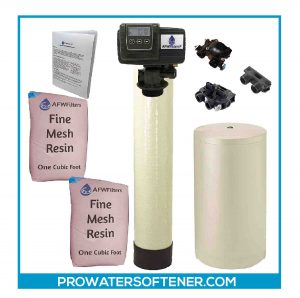
The water softener has a 64,000-grain capacity, making it ideal for large households and high levels of hard water. The included bypass valve effectively isolates the water softener. However, the metered regeneration system makes it simple to maintain softened water production. However, keep in mind that it is a salt-based water softener with a weight of 120 pounds.
- 64,000-grain capacity serves a large family.
- Uses the proven Fleck 5600SXT digital head.
- Brine tank overflow control system protects floors from spills.
- Metered regeneration is a cost-saver.
- Controls manganese up to 6 ppm
- The round tank has a large footprint.
2. Fleck 5600SXT 64,000 Grain Water Softener
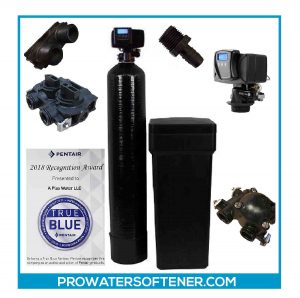
The metered regeneration system can be programmed using the digital control head to suit your daily or weekly needs, without worrying about adding too much or too little salt to the system. While this softener is not made to remove iron from your water, it is ideal for large homes and effectively softens water by removing calcium and magnesium.
- 5 years warranty on the valve & 10 years for the tanks
- Top-class Technology with an upgraded paddle wheel meter
- Metered Control Head & Fleck 5600SXT
- Resin comes pre-loaded
- Huge capacity (16,000 to 64,000 Grain)
- The resin isn’t the best as it is just an 8% resin.
- Removes just a low level of iron.
Water Conditioner vs Water Softener: What’s the Difference?
The main difference between water conditioner and water softener is that a water softener is a device that is used to remove excessive amounts of minerals such as calcium and magnesium from water to reduce the hardness of water with the ion exchange method. On the other hand, a water conditioner changes the process of interaction of these minerals to prevent the limescale build-up in the plumbing system and appliances without actually removing the minerals. except improving the overall water quality and taste.
Water Quality
Water conditioners completely filter the water from several harmful impurities such as bacteria. However; they don’t remove the minerals which are responsible for the hardness of water, such as calcium and magnesium. On the other hand, water softeners are used to exchange the water hardness-causing ions with sodium and potassium ions without removing or filtering out anything.
In simple words, if you are only concerned about water hardness, then you must try a water softener. When it comes to improving the water quality, water conditioners are preferred due to their excellent working capability.
Running Cost and Maintenance
If we precisely talk about the running cost and maintenance, there is no doubt that water conditioners are the far cheapest and most convenient options available. We all know that water conditioners equip with filters only that help to absorb the contaminants present inside the water, and maintenance only requires filter replacement as per the instructions. However, water softeners do not only consume electricity for working but also require salt to carry on an ion exchange process that is costly and hectic.
Price
The price range of water conditioners and water softeners is very different. As per market research, water softeners are very expensive. But water conditioners are available within the price range of up to hundreds of dollars, depending upon the brand. The price range of both water treatment options may differ as it also depends on the technology they use and, most importantly, the manufacturer.
Which System is Right For You?
If you are looking between water conditioners vs water softeners, it’s helpful to assess the unique features of each system and see how those apply to your life. Both systems are highly effective at reducing the impacts of hard water, yet each system has a unique operation that should be kept in mind.
Water Softeners
- Remove hard minerals from water;
- Softened water has a small amount of sodium;
- The unit requires electricity and a drainage line;
- We can add salt periodically to the system.
Water Conditioners
- Removes chlorine, chloramines, Volatile Organic Compounds (VOCs), and other undesired contaminants altering the smell and taste of your water;
- Energy-efficient and doesn’t require a drain line;
- No brine or salt is required;
- Some water conditioners alter hard minerals so they don’t attach to surfaces and cause scaling.
One thing to note about deciding between a water softener and a water conditioner is some cities and regions have laws limiting the use of water softeners. These restrictions, sometimes referred to as brine restrictions, do not allow water treatment systems that flush excess brine down a drain line. This is because many wastewater treatment facilities don’t treat for salt, so excessive levels of salt in the wastewater can limit how that water is reused.
Frequently Asked Questions (FAQs)
1. Are a water softener and a water conditioner the same thing?
No, both are different to some extent. The water conditioner alters hard water minerals without removing them. Whereas, a water softener eliminates scale from calcium and magnesium by using softening salt in the regeneration cycle.
2. Which is a better water softener or a water conditioner?
We always recommend a water softener system over a water conditioner because it removes the hardness particles from your water and is also far more effective. It also adds the benefits of keeping hardness particles off your appliances, your clothes, your skin, and will reduce soap and detergent usage.
3. Do water conditioners work?
Yes, the water conditioners work. They do not only remove hardness minerals but also alter them and render them unable to form scale build-ups.
4. Do Saltless water softeners work?
During the ion exchange process, a polymer resin bed attracts hard water minerals and replaces them with sodium ions. Thus, this removal of magnesium and calcium is called water softening. In reality, salt-free water softeners DO NOT actually soften water at all, they “condition” it.
5. Can you have both a water softener and a water conditioner?
One thing you should not consider is using both systems. Using a water conditioner before a water softener will change the hardness particles making the ion exchange in a water softener ineffective.
Check Out: Best Rated Water Softening Systems in Canada
Conclusion
We hope this article on water softeners vs water conditioners will provide you with enough information on this topic. Remember, if you already have pure drinking tap water in your house and you only want to increase its foam-forming ability, then you should try a water softener. However, if you are more concerned about the quality of the tap water in your area, then a water conditioner will meet your purpose the best.

Steve Smith is a United State Licensed Plumber with over 18 years of plumbing experience. Steve has conducted residential and commercial plumbing jobs throughout the state and currently works for one of California’s largest plumbing companies. When he’s not working, Steve enjoys spending time with his daughter and son.
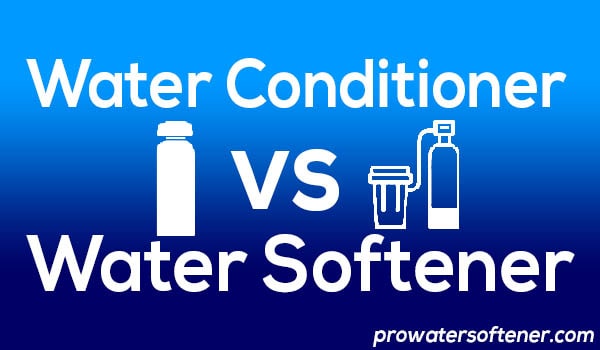
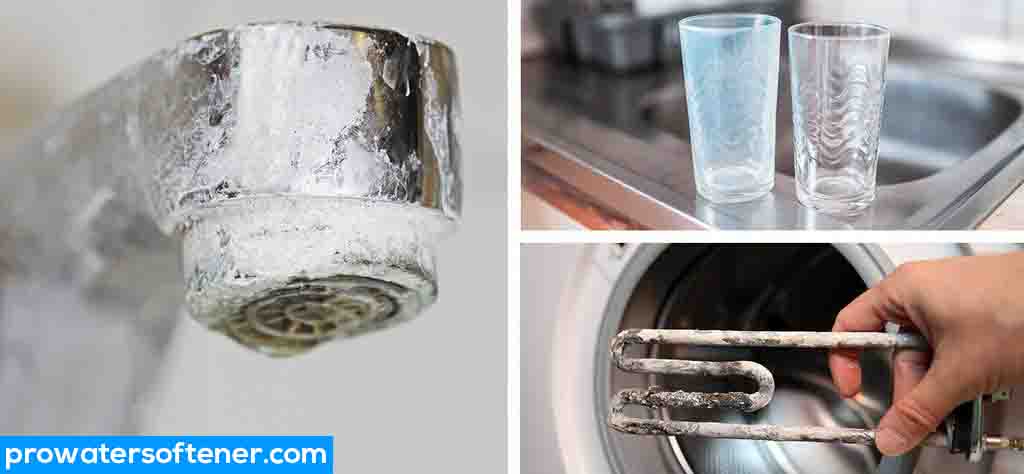
![Do all water softeners need a drain? + [FAQ Included] Do All Water Softeners Need a Drain?](https://prowatersoftener.com/wp-content/uploads/2021/11/Drainage-pipe-min-150x150.jpg)

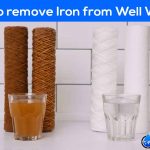
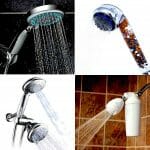
![Can you drink water from a water softener? [Important to Know] drinking soft water](https://prowatersoftener.com/wp-content/uploads/2021/03/drink-water-from-softener-150x150.jpg)
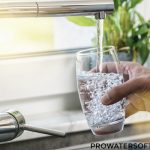
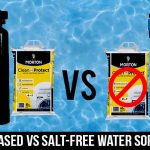
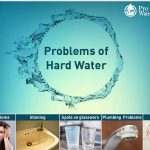
Leave a Reply